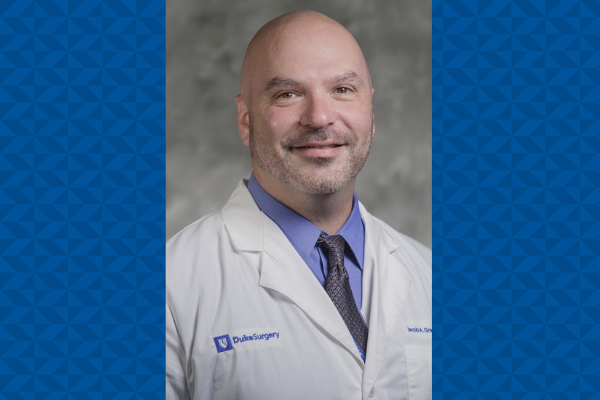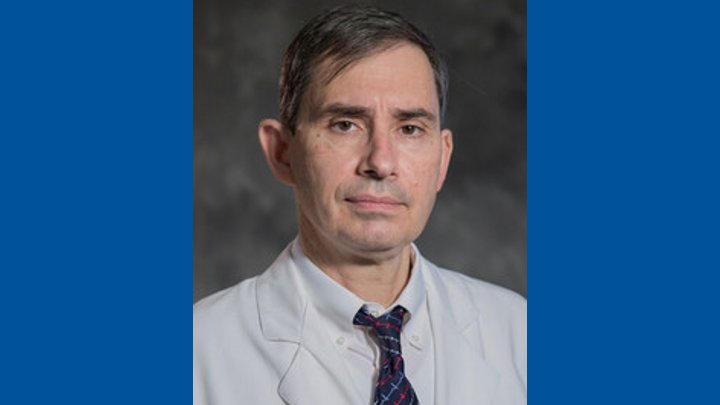
The Duke University Division of Cardiovascular & Thoracic Surgery offers an intensive surgical fellowship in mechanical circulatory support, advanced surgical therapies for heart failure, as well as heart and lung transplant surgery.
The Duke Lung Transplant Program was established in 1992 and is the largest lung transplant program in the country, averaging 110+ transplants per year and having performed over 2,500 transplants. The program has a long history of extending complex surgical therapy to patients who are not felt to be traditional candidates for transplant such as older patients, patients with cystic fibrosis colonized with resistant pathogens, patients with coronary artery and/or valvular heart disease, and critically ill individuals who require mechanical ventilation or ECMO bridging. The program has the highest transplant rate of any lung transplant program in the US. with a median wait time of 12 days and mortality on the waitlist is rare. The program is also deeply committed to research and innovation to address the primary limitations in lung transplant including an inadequate supply of donor lungs, primary graft dysfunction, and attenuated long-term survival of the lung allograft. Duke has been a pioneer in increasing the number of useable lungs including the use of ex vivo lung perfusion (EVLP), extended criteria donors, and other advanced preservation techniques. Sentinel observations at Duke have improved our understanding of the importance of environmental exposures to lung allograft injury, particularly aspiration events related to gastric reflux. In addition, to our robust clinical program we have a number of independently funded physician scientists who are continuing to address the aforementioned limitations in the field of lung transplant. Overall, the Duke program is focused on exceptional clinical care, innovation and the training of physicians and surgeons to be leaders in lung transplantation.
This experience will provide intensive training in heart and lung failure surgery beyond cardiothoracic residency training.
Program Director
Fellowship duration: 1 year (with optional extension for an elective second year)
Clinically, fellows will gain extensive experience in the surgical management of transplant patients, the deployment and maintenance of extracorporeal membrane oxygenation (ECMO) patients and ventricular assist device (VAD) management. In addition, fellows will gain exposure to heart and lung procurement including ex-vivo perfusion modalities. Included in the fellowship is participation in our weekly multidisciplinary transplant clinics and conferences.
Duke University is a world leader in heart and lung transplant as well as ECMO and VAD surgery. Fellows will also be provided ample opportunity to participate in cutting edge research and expand on their current knowledge and skill base. Fellows will be supervised by faculty assigned to the transplant and heart failure services.
Recruitment & Selection
Applicants must have completed an ACGME-accredited training program or an international equivalent in either:
- an Integrated Cardiothoracic Surgery residency,
- a 4/3 Cardiothoracic Surgery residency, or
- a Traditional 2–3 year Cardiothoracic Surgery Fellowship
Graduates from U.S., Canadian, or International medical schools are welcome to apply. All Applicants should:
- Be board-eligible or board-certified by the American Board of Thoracic Surgery (ABTS) or an equivalent international board.
- Be eligible for a full or resident training license in North Carolina.
- Be a graduate of:
- a U.S. or Canadian medical school accredited by the Liaison Committee on Medical Education (LCME),
- a U.S. college of osteopathic medicine accredited by the American Osteopathic Association (AOA), or
- an international medical graduate who meets the criteria outlined above.
Contact Us
For more information, contact:
Gretchen Lynch, C-TAGME
Program Coordinator
Office: (919) 613-5069
Email: Gretchen.lynch@duke.edu



